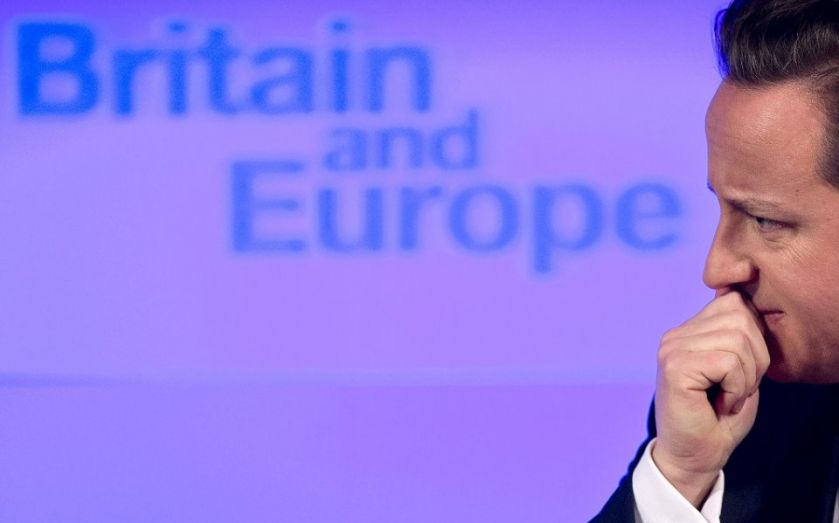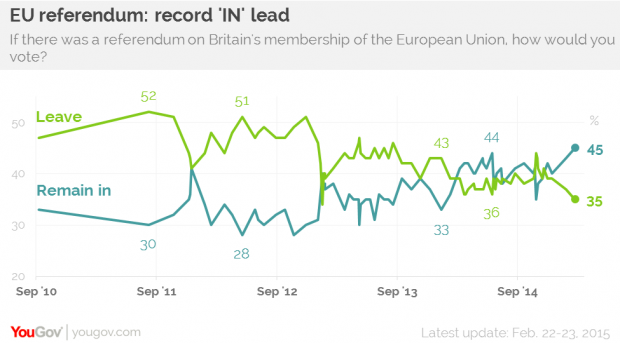British support for EU membership surges to all-time high

A record number of Brits want the UK remain in the EU, according to a new YouGov poll.
Some 45 per cent of voters said they don't want a "Brexit", compared with 35 per cent who would choose to leave. The numbers represent the largest lead for the pro-EU camp since YouGov's records began.
Support for the EU has ticked up by three per cent since last month. There has been a massive turnaround in people's attitudes toward the EU. In May 2012, YouGov showed those who wanted to leave the EU leading by a whopping 23 points.

Analysts at HSBC recently warned that the UK was threatening to leave the EU at the worst possible moment. The report, which was written by Simon Wells and Liz Martins said:
We believe the UK should stay in the EU. There is no evidence that being a member has harmed the economy – and it may well have benefited.
Wells and Martin argued Britain was well positioned to benefit from plans to create a single market in services and a capital markets union. But a Brexit would not be economically intolerable, the report added:
We think that most of the fundamental attractions of London would not change and that the City could remain a global financial centre: Brexit would not mean terminal decline for the City.
The British Chamber of Commerce (BCC) has urged any referendum on Britain's EU membership to be brought forward to head-off the effects of economic uncertainty.
Director General of the BCC John Longworth warned that if the EU didn't embark on serious reform "business support for the European project is far from guaranteed".
However, for the time being, support for Brexit among captains of industry remains pitifully low at one per cent, according to pollsters Ipsos Mori.
Labour leader Ed Miliband has ruled any prospect of a referendum should he win the General Election. David Cameron has promised a renegotiation of Britain's terms of membership followed by a referendum.
Perhaps unsurprisingly the up and downs in support for EU membership have closely tracked economic confidence and the various crises afflicting the Eurozone. YouGov said:
One possible explanation for the movement towards 'in' is that voters have become less interested in disrupting the status quo as they have increasingly felt its rewards.
